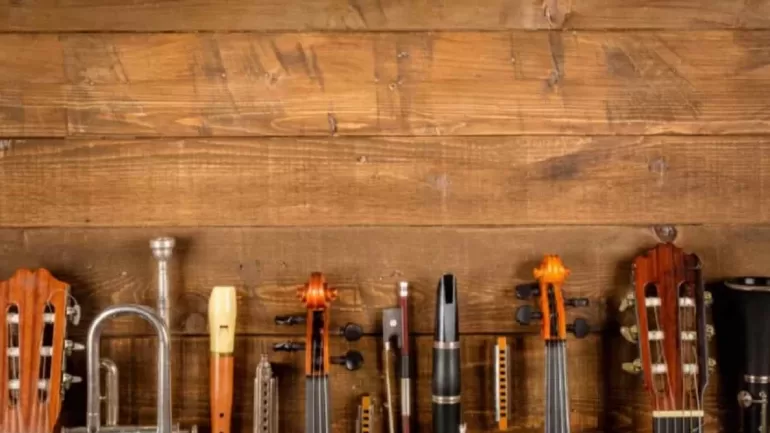ENTERTAINMENT
Learn the best practices for taking care of your instrument with our expert guide that will keep your gear in perfect condition and ensure flawless performance!
BY EMMA RADEBAUGH, ARTCENTRON
Tips for Taking Care of Your Instrument
No matter how long you’ve been playing music, you know the importance of taking care of your instrument. Giving attention to your instrument helps it sound great and last long. So, how do you take care of your instrument?
With this guide for musicians, taking care of your instrument should be a breeze. By the end, you’ll be equipped with the knowledge to keep yours in top condition, ensuring every note you play is flawless.
Regular Cleaning
Regular cleaning is essential for all musical instruments. Dust and dirt can accumulate, negatively affecting sound quality and visual appearance.
Use a soft cloth to wipe down your instrument after each use. For a deeper cleaning, use appropriate cleaning solutions recommended for your specific instrument type. Avoid using household cleaners, as they may contain harsh chemicals that can damage the instrument.
Proper Storage
Storing your instrument correctly is crucial for keeping it looking good and playing well. Temperature and humidity fluctuations can damage the materials while negatively affecting the sound and structural integrity.
Always store your musical instrument in its case when not in use, and keep it in a room with stable temperature and humidity levels. Never leave your instrument in a car or any environment with fluctuating temperatures, as they can cause swelling, shrinking, cracks, and other damage.
Troubleshooting Common Problems
Despite regular maintenance, musical instruments can still experience issues that require attention. The first step in addressing these problems is to identify the symptoms:
Strings
Buzzing or dead spots on the fingerboard of string instruments could indicate worn strings or improper setup. Replacing the strings or adjusting the bridge height can often resolve these issues.
Brass
If you notice a sluggish response or a change in the sound quality of your brass instrument, the problem may lie in stuck valves or blocked tubing. Regular cleaning and lubrication can prevent these issues from arising.
Wood
Woodwind players may experience leaks or uneven tones, which you can trace back to worn pads or misaligned keys. Replacing the pads and ensuring all mechanisms are functional will enhance sound and playability.
Percussion
Percussionists should be vigilant about checking drumheads for cracks or wear. If the drum sounds dull or lacks resonance, replacing the drumhead can bring the sound back to life. Additionally, tighten all hardware to prevent unwanted rattling.
If problems persist, it may be necessary to consult a professional musical instrument technician.
Seeking Professional Help Taking Care of Your Instrument
While you can do regular maintenance at home, getting your instrument repaired by a pro is important. Regularly taking your instrument to a professional for deep cleaning, tuning, and repairs addresses even the smallest issues before they worsen.
Don’t hesitate to ask for advice! Seek professional help if you notice changes in sound quality or playability. Professional technicians have the tools and expertise to diagnose and fix issues. Their expertise ensures your instrument receives the best care possible.
Get More Life Out of Your Instrument
Taking care of your instrument is crucial for maintaining its quality and longevity. With these best practices, you can ensure your instrument remains in top condition, providing you with years of musical enjoyment.
